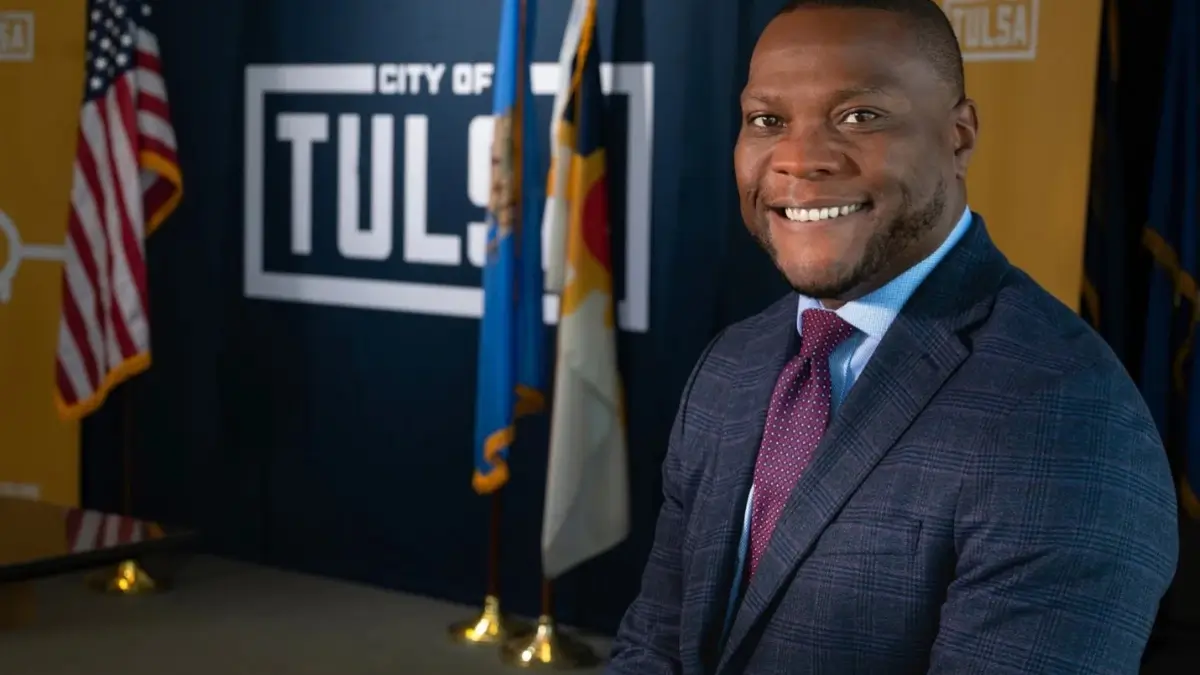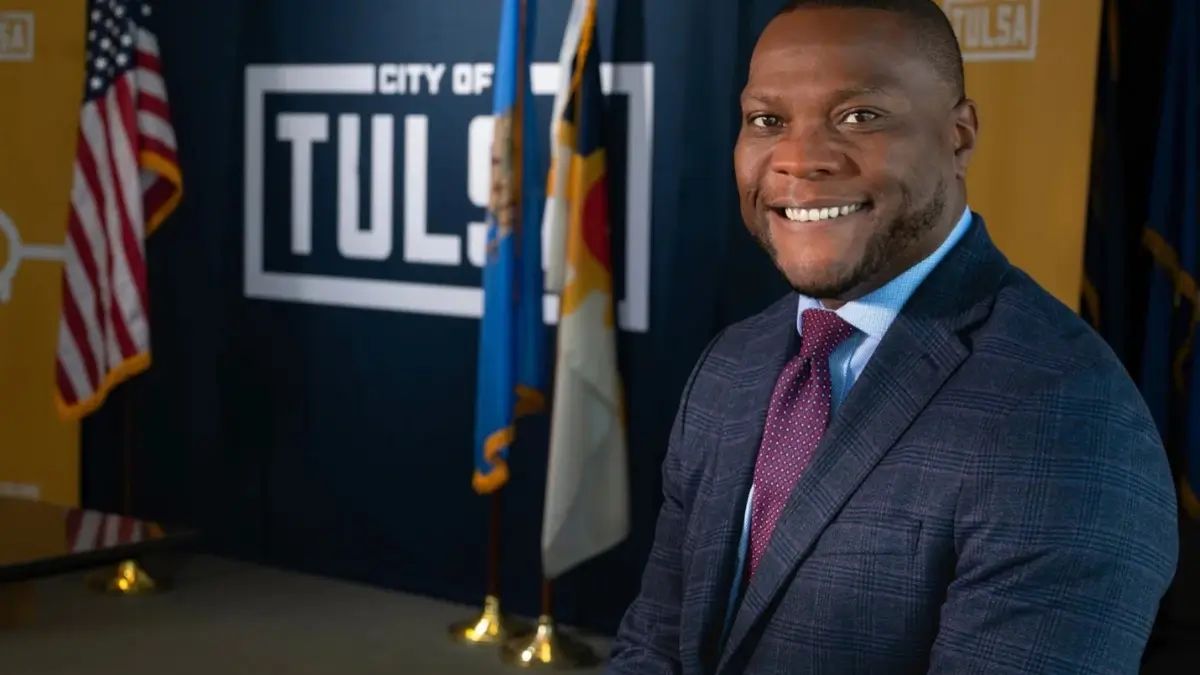‘A Stain on Our City’s History:’ Tusla Mayor Proposes $100 Million Trust to Make Amends for Black Wall Street Massacre
The mayor of Tulsa, Oklahoma, has proposed a $100 million private trust as part of a reparations package that would help the descendants of the victims of the 1921 Tulsa Race Massacre, including housing assistance and scholarships, and would help revitalize the city’s north side, but the plan would not include any direct cash payments.
Mayor Monroe Nichols, the city’s first Black mayor, announced the plan Sunday as part of an effort to atone for one of the worst racial attacks in U.S. history when a violent white mob attacked North Tulsa’s prosperous Historic Greenwood District, killing as many as 300 Black people and burning down the area known as Black Wall Street.

Nichols is not calling the proposal a reparations package because he thinks the term is “politically charged,” according to The Associated Press. Instead, he’s calling the plan a “road to repair.”
“For 104 years, the Tulsa Race Massacre has been a stain on our city’s history,” Nichols told a crowd at the Greenwood Cultural Center in North Tulsa. “The massacre was hidden from history books, only to be followed by the intentional acts of redlining, a highway built to choke off economic vitality and the perpetual underinvestment of local, state and federal governments.”
“Now it’s time to take the next big steps to restore,” he said.
The AP reported Nichols’ plan for the Greenwood Trust, which would not require city council approval, would be developed over the next year by an executive director and board of managers with a goal of raising $105 million in assets. The assets would include property transfers, private contributions and possible public funding. The majority of that funding, $60 million, would be used for building improvements and revitalization projects in North Tulsa.
Nichols said the murderous riot and destruction of what was once a thriving Black community known as Black Wall Street has left persistent scars. “The Greenwood District at its height was a center of commerce,” Nichols told the AP. “So, what was lost was not just something from North Tulsa or the Black community. It actually robbed Tulsa of an economic future that would have rivaled anywhere else in the world.”
On May 31, 1921, in one of the largest massacres based on race in U.S. history, a white mob fueled by anger and hatred destroyed over 35 square blocks, including 200 businesses and 1,200 homes, according to the Tulsa Historical Society. The attack started after a Black man was accused of assaulting a white woman.
“One hundred and four years is far too long for us to not address the harm of the massacre,” Nichols told The New York Times in an interview before the announcement. He said the trust proposal about “what has been taken from a people, and how do we restore that as best we can in 2025, proving we’re much different than we were in 1921.”
Cities, states and universities across the country have undertaken efforts to create reparation plans to compensate for the devastation caused by slavery, but Nichols’ proposed Greenwood Trust is the first to try to make amends for a specific historical event.

